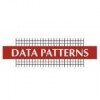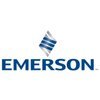17 NitroDynamics Aerospace & Defence Jobs
RF Engineer
NitroDynamics Aerospace & Defence
posted 2mon ago
Job Role Insights
Key skills for the job
Job Description
About Us:. Nitro Dynamics is at the forefront of defense and aerospace innovation, specializing in advanced sensor integration, data fusion, and the design of high-performance unmanned systems. Our team is driven by a commitment to excellence, delivering state-of-the-art solutions that address complex challenges in national security and aerospace technology
Position Overview:. We are seeking a highly skilled RF Engineer to join our team, focusing on the design, development, and optimization of advanced radio frequency systems and components. The ideal candidate will have extensive experience in RF circuit design, antenna theory, electromagnetic compatibility, and RF system integration. This role involves working closely with multidisciplinary teams to develop cutting-edge RF solutions for defense and aerospace applications, ensuring peak performance under rigorous operational conditions
Key Responsibilities:. RF Circuit Design: Design, simulate, and optimize RF circuits, including low-noise amplifiers (LNAs), power amplifiers (PAs), mixers, oscillators, and filters, tailored for defense and aerospace systems
Antenna Design & Optimization: Develop and optimize antenna systems, including mono-poles, dipoles, patch antennas, phased arrays, and beam-forming networks, ensuring high performance in terms of gain, efficiency, bandwidth, and radiation patterns
RF System Integration: Integrate RF subsystems into larger platforms, such as UAVs, radar systems, and communication networks, ensuring compatibility and seamless operation
Signal Propagation & Link Budget Analysis: Perform detailed signal propagation studies, link budget analysis, and system-level simulations to ensure robust RF performance across various environments and operating conditions
EMC/EMI Mitigation: Analyze and address electromagnetic compatibility (EMC) and electromagnetic interference (EMI) issues in RF systems, implementing shielding, filtering, and grounding strategies as needed
RF Testing & Measurement: Conduct comprehensive RF testing and validation using advanced equipment, such as vector network analyzers (VNAs), spectrum analyzers, signal generators, and power meters, to characterize system performance and identify areas for improvement
Modulation & Coding: Implement and optimize various modulation schemes (e.g., QAM, PSK, FSK) and error correction techniques for communication systems, ensuring reliable data transmission
Microwave & Millimeter-Wave Design: Design and analyze microwave and millimeter-wave components, including wave-guides, couplers, and filters, for high-frequency applications
System-Level Design & Simulation: Use tools like HFSS, CST, ADS, and MATLAB for system-level design and electromagnetic simulations, ensuring accurate prediction of system behavior and performance
Documentation & Reporting: Create detailed technical documentation, including design specifications, test plans, and validation reports, and present findings to technical and non-technical stakeholders
Research & Development: Stay abreast of emerging technologies in RF engineering, contributing innovative ideas to enhance system capabilities and meet evolving project requirements
Qualifications:. Educational Background: Bachelors or Masters degree in Electrical Engineering, Telecommunications, or a related field. A Ph.D. is preferred
RF Engineering Expertise: 5+ years of experience in RF design and development, particularly in defense or aerospace applications
Advanced Circuit Design: Extensive experience with RF/microwave circuit design, including impedance matching, S-parameter analysis, and non-linear RF simulation techniques
Simulation & Modeling: Proficiency in using RF simulation tools (e.g., HFSS, CST, ADS) for electromagnetic analysis and circuit design
Antenna Design Skills: Deep knowledge of antenna theory, design, and testing, with experience in both far-field and near-field measurement techniques
EMC/EMI Expertise: Strong understanding of EMC/EMI principles and mitigation techniques, with hands-on experience in shielding, filtering, and grounding practices
Measurement & Testing: Expertise in RF measurement techniques, including the use of VNAs, spectrum analyzers, and signal generators, for both lab-based and field testing
Communication Systems: Proficiency in RF communication systems, including experience with various modulation schemes, coding techniques, and signal processing algorithms
Material Science Knowledge: Familiarity with materials used in RF/microwave engineering, such as substrates, conductors, and dielectrics, and their impact on performance
Requirements. Defense & Aerospace Experience: Experience with RF systems used in defense and aerospace, including radar, electronic warfare, and secure communication systems
Microwave & Millimeter-Wave Technology: Expertise in designing components and systems operating in the microwave and millimeter-wave frequency ranges
Project Management: Demonstrated ability to manage complex RF engineering projects, including timeline management, resource allocation, and cross-functional coordination
Digital Signal Processing (DSP): Knowledge of DSP techniques as applied to RF systems, including filtering, demodulation, and spectral analysis
Benefits. Innovative Environment: Work on pioneering RF technologies that are critical to national defense and aerospace advancement
Collaborative Culture: Be part of a talented, multidisciplinary team that values creativity, collaboration, and continuous learning
Professional Development: Access to ongoing training and career growth opportunities in a cutting-edge field
Competitive Compensation: Comprehensive salary and benefits package, including health insurance, retirement plans, and more
Position Overview:. We are seeking a highly skilled RF Engineer to join our team, focusing on the design, development, and optimization of advanced radio frequency systems and components. The ideal candidate will have extensive experience in RF circuit design, antenna theory, electromagnetic compatibility, and RF system integration. This role involves working closely with multidisciplinary teams to develop cutting-edge RF solutions for defense and aerospace applications, ensuring peak performance under rigorous operational conditions
Key Responsibilities:. RF Circuit Design: Design, simulate, and optimize RF circuits, including low-noise amplifiers (LNAs), power amplifiers (PAs), mixers, oscillators, and filters, tailored for defense and aerospace systems
Antenna Design & Optimization: Develop and optimize antenna systems, including mono-poles, dipoles, patch antennas, phased arrays, and beam-forming networks, ensuring high performance in terms of gain, efficiency, bandwidth, and radiation patterns
RF System Integration: Integrate RF subsystems into larger platforms, such as UAVs, radar systems, and communication networks, ensuring compatibility and seamless operation
Signal Propagation & Link Budget Analysis: Perform detailed signal propagation studies, link budget analysis, and system-level simulations to ensure robust RF performance across various environments and operating conditions
EMC/EMI Mitigation: Analyze and address electromagnetic compatibility (EMC) and electromagnetic interference (EMI) issues in RF systems, implementing shielding, filtering, and grounding strategies as needed
RF Testing & Measurement: Conduct comprehensive RF testing and validation using advanced equipment, such as vector network analyzers (VNAs), spectrum analyzers, signal generators, and power meters, to characterize system performance and identify areas for improvement
Modulation & Coding: Implement and optimize various modulation schemes (e.g., QAM, PSK, FSK) and error correction techniques for communication systems, ensuring reliable data transmission
Microwave & Millimeter-Wave Design: Design and analyze microwave and millimeter-wave components, including wave-guides, couplers, and filters, for high-frequency applications
System-Level Design & Simulation: Use tools like HFSS, CST, ADS, and MATLAB for system-level design and electromagnetic simulations, ensuring accurate prediction of system behavior and performance
Documentation & Reporting: Create detailed technical documentation, including design specifications, test plans, and validation reports, and present findings to technical and non-technical stakeholders
Research & Development: Stay abreast of emerging technologies in RF engineering, contributing innovative ideas to enhance system capabilities and meet evolving project requirements
Qualifications:. Educational Background: Bachelors or Masters degree in Electrical Engineering, Telecommunications, or a related field. A Ph.D. is preferred
RF Engineering Expertise: 5+ years of experience in RF design and development, particularly in defense or aerospace applications
Advanced Circuit Design: Extensive experience with RF/microwave circuit design, including impedance matching, S-parameter analysis, and non-linear RF simulation techniques
Simulation & Modeling: Proficiency in using RF simulation tools (e.g., HFSS, CST, ADS) for electromagnetic analysis and circuit design
Antenna Design Skills: Deep knowledge of antenna theory, design, and testing, with experience in both far-field and near-field measurement techniques
EMC/EMI Expertise: Strong understanding of EMC/EMI principles and mitigation techniques, with hands-on experience in shielding, filtering, and grounding practices
Measurement & Testing: Expertise in RF measurement techniques, including the use of VNAs, spectrum analyzers, and signal generators, for both lab-based and field testing
Communication Systems: Proficiency in RF communication systems, including experience with various modulation schemes, coding techniques, and signal processing algorithms
Material Science Knowledge: Familiarity with materials used in RF/microwave engineering, such as substrates, conductors, and dielectrics, and their impact on performance
Requirements. Defense & Aerospace Experience: Experience with RF systems used in defense and aerospace, including radar, electronic warfare, and secure communication systems
Microwave & Millimeter-Wave Technology: Expertise in designing components and systems operating in the microwave and millimeter-wave frequency ranges
Project Management: Demonstrated ability to manage complex RF engineering projects, including timeline management, resource allocation, and cross-functional coordination
Digital Signal Processing (DSP): Knowledge of DSP techniques as applied to RF systems, including filtering, demodulation, and spectral analysis
Benefits. Innovative Environment: Work on pioneering RF technologies that are critical to national defense and aerospace advancement
Collaborative Culture: Be part of a talented, multidisciplinary team that values creativity, collaboration, and continuous learning
Professional Development: Access to ongoing training and career growth opportunities in a cutting-edge field
Competitive Compensation: Comprehensive salary and benefits package, including health insurance, retirement plans, and more
Employment Type: Full Time, Permanent
Read full job descriptionSimilar Jobs for you
Share an Interview



























